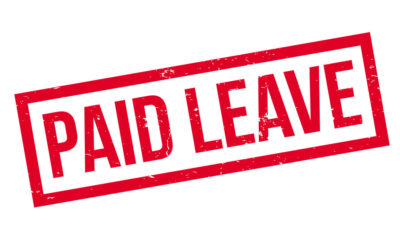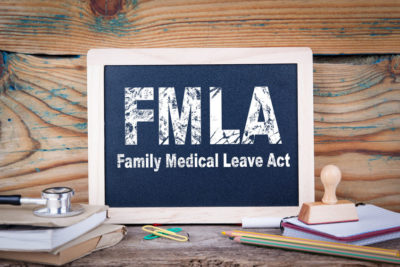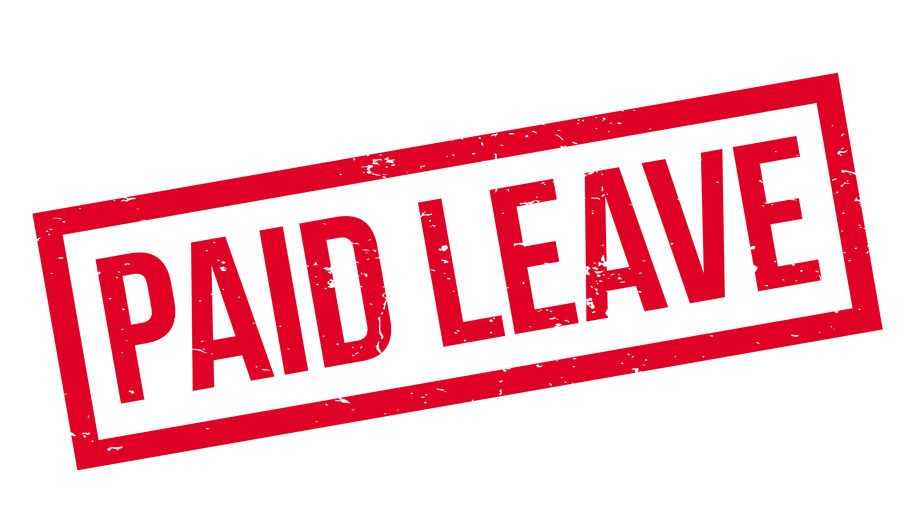With the coronavirus amid our communities and isolation and quarantine orders in place, you may have seen lots of talk about new legislation to assist workers to get paid during these uncertain times. Wait no more!
 On March 18, 2020, President Trump passed the Families First Coronavirus Response Act, which affords workers unprecedented protections, among other issues related to coronavirus testing and the like. This law goes into effect no later than April 2, 2020 and will expire after December 31, 2020.
On March 18, 2020, President Trump passed the Families First Coronavirus Response Act, which affords workers unprecedented protections, among other issues related to coronavirus testing and the like. This law goes into effect no later than April 2, 2020 and will expire after December 31, 2020.
Two main points to the new Families First law impact workers: the Emergency Paid Sick Leave Act and the Emergency Family and Medical Leave Act Expansion Act. So, let’s break them down:
Emergency Paid Sick Leave Act
Most employees who are employed by private companies with fewer than 500 employees or are employed by federal, state and local government agencies are entitled to PAID sick leave for the following coronavirus related absences:
- If you are quarantined under a federal, state or local order;
- If you have been advised by a health care provider to self-quarantine due to COVID-19;
- If you have symptoms of the coronavirus and are seeking medical diagnosis;
- If you are caring for an individual who is subject to a quarantine order or was advised to self-quarantine by a medical professional;
- If you are caring for an employee’s child because the school or child care has been closed; or
- If you are experiencing any other substantially similar condition as specified by the U.S. Department of Health and Human Services.

Unfortunately, employers of healthcare providers and emergency responders can choose to exclude its employees from the new emergency sick leave entitlements.
How much leave are you entitled to?
Full-time employees are entitled to 80 hours of paid sick leave.
Part-time employees are entitled to the typical number of hours that they work in a typical two-week period. For example, if you only work 24 hours a week, you are only entitled to 24 hours a week of paid leave, or 48 hours in two weeks.
If you have a varying schedule, your leave entitlement will depend on the average number of hours you worked in the six months prior to the leave or what you would have been scheduled to work.
So, how much does your employer have to pay you?
This depends on the nature of your reason for the leave.
If you take emergency sick leave because you are mandated to quarantine, advised to self-quarantine, have symptoms of COVID-19 or are seeking diagnosis, then you are entitled to your regular pay for two weeks (not to exceed $511 per day or $5,110 for the entire two-week period).
On the other hand, if you are on leave because your child(ren) is/are out of school due to quanatine closures or you are taking care of a family member who has COVID-19, then you are only entitled to two-thirds of your regular pay for two weeks (not to exceed $200 per day or a total of $2,000 for the entire two-week period).
Do I have to give my employer notice of my need for leave?
After the first workday that you receive emergency paid sick time under this new law, an employer may require you to follow reasonable notice procedures in order to continue receiving such paid sick time.
Can my employer require me to use my accrued vacation, PTO or sick time before the emergency sick leave entitlement?
No, as written, this would violate the Families First law.
Is my employer allowed to require me to find a replacement when I am out on paid emergency sick leave?
No. This is unlawful and employers are prohibited from requiring employees to find a replacement to cover his or her hours while they are on emergency sick leave.
What if your employer fails to pay you the sick leave?
Assuming you are an eligible employee and a covered employer fails to pay you your sick leave entitlement, this is a violation of the federal minimum wage law (known as the Fair Labor Standards Act). Your remedies for violations of the new law include recovery of your lost wages, plus an equal amount of your lost wages (liquidated damages), and your reasonable attorneys’ fees and costs. If your employer violates your rights, do not delay in seeking consultation with an experienced employment lawyer as your legal claims are subject to strict deadlines.
Unfortunately, what remains unknown is how violations will be handled if a covered employer cannot afford to pay emergency sick leave to employees. Even though the new law provides certain future tax breaks for employers, many small employers may not be in a financial position to pay such emergency leave now. There are still too many unknowns. We must await further guidance from the Department of Labor on these issues.
Am I protected from retaliation?
Yes. It is illegal for a covered employer to deny leave, discipline, terminate or otherwise take adverse action against employees for who either take emergency sick leave or complain about their employer’s violations related to emergency sick leave.
The other important section of the Families First law was the expansion of worker rights under the Family and Medical Leave Act.
Emergency Family and Medical Leave Expansion Act
 Essentially, for covered employers and eligible employees, the Emergency Family and Medical Leave Expansion Act (“FMLA Expansion”) picks up where the Emergency Paid Sick Leave Act leaves off.
Essentially, for covered employers and eligible employees, the Emergency Family and Medical Leave Expansion Act (“FMLA Expansion”) picks up where the Emergency Paid Sick Leave Act leaves off.
Generally, under the FMLA, eligible employees who work for covered employers are entitled up to 12-weeks of job-protected, unpaid sick leave to care for oneself, or a family member with a serious health condition, or for the birth or adoption of a child. The FMLA Expansion Act creates specific protections related to the coronavirus and 12 weeks of job-protected sick leave different from an employee’s traditional FMLA rights.
Who’s entitled to the Leave?
Employees who have been employed for at least 30 days with a covered employer are entitled to the leave under the expanded FMLA. (This is different from non-coronavirus leave, which requires an employee to be employed for at least 12 months and work at least 1,250 hours in a 12 month period).
Is your employer subject to the expanded FMLA?
Generally, if your employer has fewer than 500 employees, or is a federal, state and local government employer, then your employer is required to follow the FMLA Expansion law. (Again, this is different than traditional coverage for non-coronavirus related leave which only applies to employers who employ 50 or more employees within a 75-mile radius.)
Am I entitled to paid FMLA leave if I am sick with coronavirus or caring for someone who is sick with coronavirus?
Not under the FMLA Expansion Law. If you are sick with a serious health condition or are caring for a sick family member who has a serious health condition, you are entitled to up to 12 weeks of unpaid, job-protected leave under the FMLA, assuming you and your employer meet the traditional requirements of the FMLA. Thus, if you have worked for your employer for 12 months, worked more than 1,250 hours in a 12-month period and your employer employs more than 50 employees within a 75-mile radius, then you may qualify for traditional FMLA. But, if your employer provides you with accrued, paid vacation, PTO, or sick time, you can you use that to get paid during your traditional FMLA leave. You may also be entitled to benefits under a short-term disability policy, if you paid for this benefit.
So when does this expanded FMLA apply?
You are entitled to paid, FMLA leave under the new FMLA Expansion law only if you need leave and cannot work, including working remotely, because you need to care for your child(ren) whose school or child care provider are closed due to a declared emergency related to COVID-19.
How much paid leave are you entitled to?
For the first 10 days of this particular FMLA leave, you are NOT entitled to be paid (however, many employees will receive paid leave through the Emergency Paid Sick Leave Act). If you are not entitled to pay under the Emergency Paid Sick Leave Act, then you are permitted to use any accrued vacation, sick time or PTO that your employer provides to get paid for the first 10 days.
After 10 days of this unpaid FMLA Expansion leave, the new law requires covered employers to pay you two-thirds of your regular rate of pay for the number of hours you would normally be scheduled to work during the leave, for up to 10 weeks (up to a maximum of $200 per day or $10,000 in total).
If you have a varying schedule, the calculation of two-thirds pay will depend on the average number of hours you worked in the preceding six months to the leave or what you would have been scheduled to work and is subject to the $200 per day cap.
Do I have to give my employer notice of the need for leave?
Yes, where your need for leave under the FMLA Expansion Law is foreseeable, then you may be required to provide your employer advance notice as soon as practicable. Additionally, after starting leave under the FMLA, the employer may require you to give notice of the need for continued leave.
Are you entitled to your job back after FMLA leave under the public health emergency exception?
Generally, yes. You are entitled to be reinstated to your same or similar position at the same rate of pay plus benefits and the same terms and conditions of employment. This is consistent with the traditional FMLA rights afforded to eligible employees. However, there is one exception. If your employer employs fewer than 25 employees, then they may not have to restore you to your job if they meet certain conditions and attempt to re-employ you within one-year of your leave ending. To understand whether your employer falls into this exception, you should consult with an experienced attorney at Sass Law Firm who can tell you all the nuances of the law.
FMLA Violations
If your employer violates the FMLA or interferes with your rights to this new FMLA leave, you may be entitled to recover your lost wages and benefits, plus an equal amount of your lost wages and benefits, in addition to your attorneys’ fees and costs. FMLA violations are subject to strict deadlines, so do not delay in consulting a lawyer to pursue your rights under the law.
No Retaliation!
Know your rights. It is against the law for your employer to retaliate against you because you requested FMLA leave and/or took FMLA leave.

